Chinese Superstitions 🧧 Find Out What’s Lucky and Unlucky in China
Although we are now living in a modern age there are still many Chinese superstitions that feature prominently in Chinese life today.
From buildings having a whole floor “missing”, not being able to get your haircut at certain times of the year or objects that should never be given as gifts let’s delve into what is considered lucky and unlucky in Chinese culture.
Chinese Superstitions || Numbers
Chinese Superstitions || Colours
Chinese Superstitions || Gift Giving
Chinese Superstitions || Chinese New Year
Chinese Superstitions || Chinese Zodiac
Chinese Superstitions || Miscellaneous
Chinese Superstitions || FAQs
Chinese Superstitions – Numbers
To kick things off on our list of Chinese superstitions we have the numbers that are considered lucky and unlucky in China.
Lucky Numbers
The luckiest number according to Chinese culture has to be the number 8. This is because 8 in Chinese is bā (八) which sounds similar to the word fā (發) which means “to prosper”.
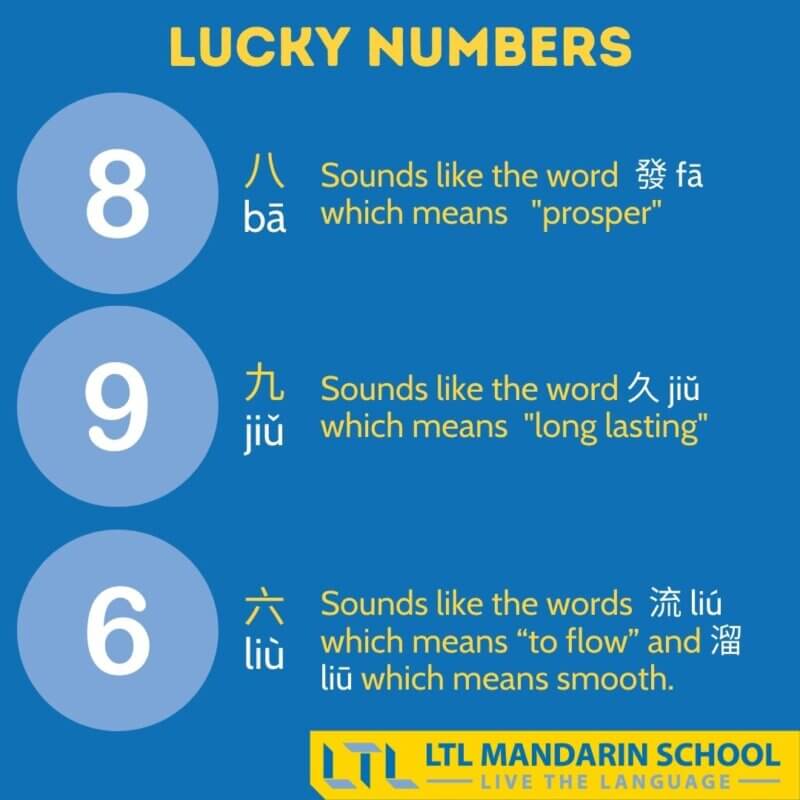
You’ll actually see a lot of Chinese superstitions are based around homophones where something is considered lucky or unlucky because the pronunciation sounds similar to something else.
The number 8 is considered so lucky in China that things like mobile phone numbers or license plate numbers with multiple 8s in them are highly valued.
For example in 2014, two number plates with “8888” were sold in Shenzhen for 17.2 million CNY and in Zhengzhou for 12 million CNY. Pretty crazy right!
Along with the number 8 some other lucky numbers in China are the number 6 (六 liù) and the number 9 (九 jiŭ).
6 is seen as lucky because it sounds like 流 liú which means “to flow” and 溜 liū which means smooth.
9 is viewed as lucky because it has the same pronunciation as 久 jiŭ which translates to “long lasting” or “eternity”.
Check out our blog for even more information on lucky Chinese numbers.
Unlucky Numbers
Unlike the west the unluckiest number in China is not the notorious number 13, instead it is the number 4.
The bad luck associated with this number is also taken much more seriously than 13 is in the West.
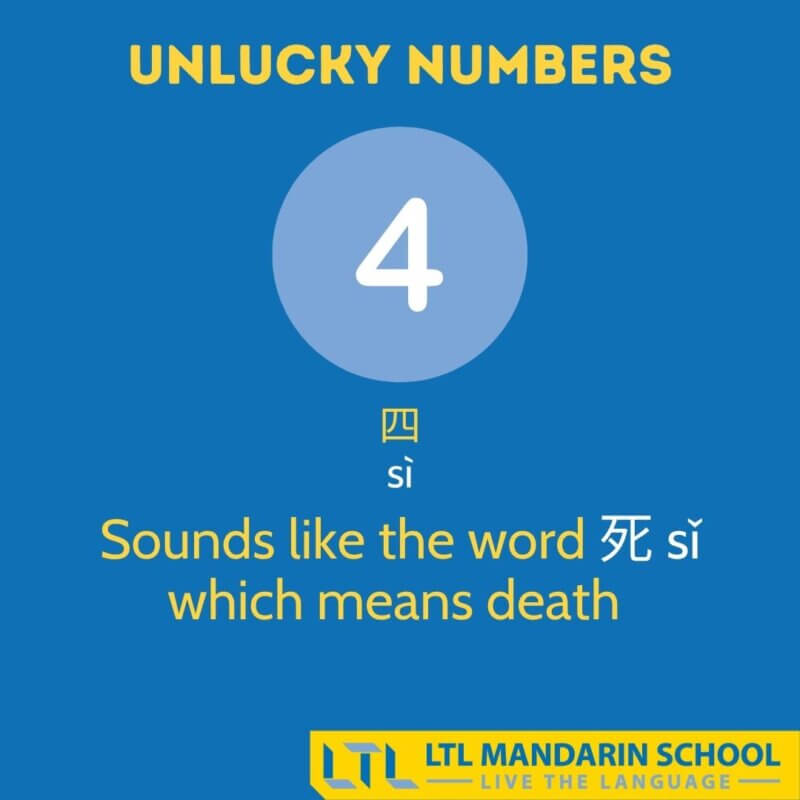
In China many buildings and apartment blocks will miss out the fourth floor of a building because it is considered such bad luck. In fact, the building where LTL Beijing is based, Xiandai Soho, has no fourth floor!
And it’s not just buildings where the number 4 is avoided, Chinese people will try to not have a 4 in their mobile phone number or license plate number too.
Just like the number 8 is sought after, the number 4 is very much unwanted.
When you buy a SIM card in China they’ll often ask which number it is you want from a list. Take a glance and you’ll often see the list is full of numbers with 4 in them that have remained unchosen.
So why is it that the number 4 has so much bad luck attached to it in China?
Well, the answer is pretty simple it’s because 4 in Chinese is pronounced sì ( 四 ) which sounds like the word for death: sǐ ( 死 ). This is why there are such strong Chinese superstitions around this number even in present day China.
Chinese Superstitions – Colours
Next up we’re going to explore what Chinese superstitions there are surrounding different colours.
Lucky Colours
For anyone who has been in China for Chinese New Year or seen videos or photographs of Chinese New Year celebrations; it should come as no surprise that one of the luckiest colours in China is red.
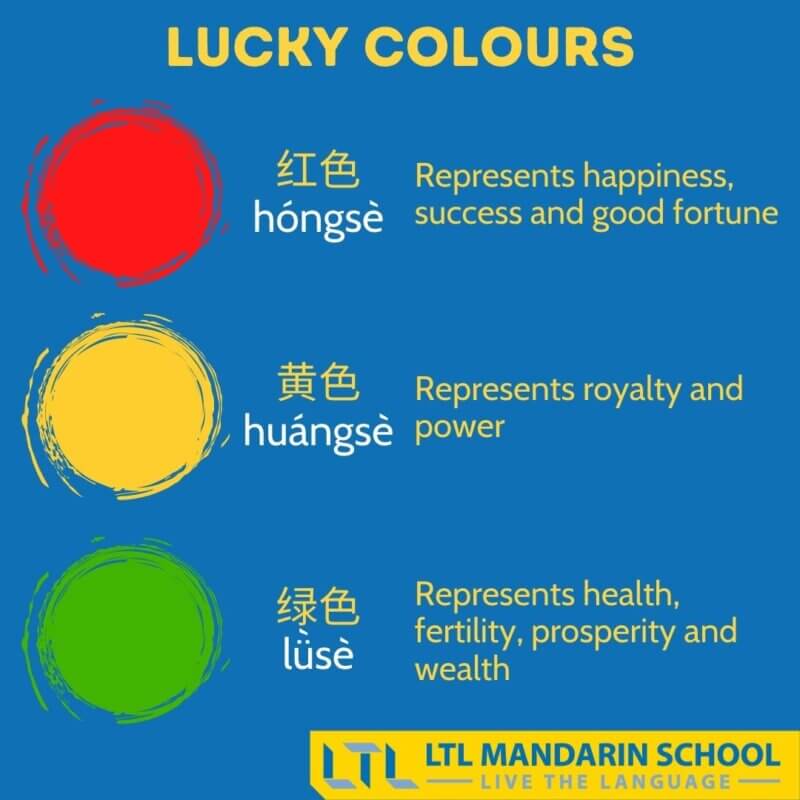
Red represents happiness, success and good fortune so it is always used during important Chinese festivals or other celebratory events like Chinese weddings. At these events you’ll see red lanterns, red decorations such as posters of the “double happiness” ( 双喜 shuāngxǐ) character: 囍 or red paper cuttings.
The colour red is also of course famously used for lucky red envelopes which are given out at important events or in modern day China can be given to friends over WeChat Pay or Alipay.
Other lucky colours in China are yellow and green.
Yellow traditionally symbolised royalty and power because it was the colour of the emperor. In fact the first Emperor of China was known as the Yellow Emperor.
Yellow was used a lot in imperial buildings, just think of the yellow rooftops of the Forbidden City.
Green represents health, fertility, prosperity and wealth so you’ll often see banks and restaurants painted in green.
However, green hats should be avoided because the saying 戴绿帽 dài lǜ mào (to wear a green hat) is a colloquial term meaning that you are being cheated on.
Unlucky Colours
Unlike the West where white represents innocence and purity in China white actually symbolises death and mourning so is a very unlucky colour.
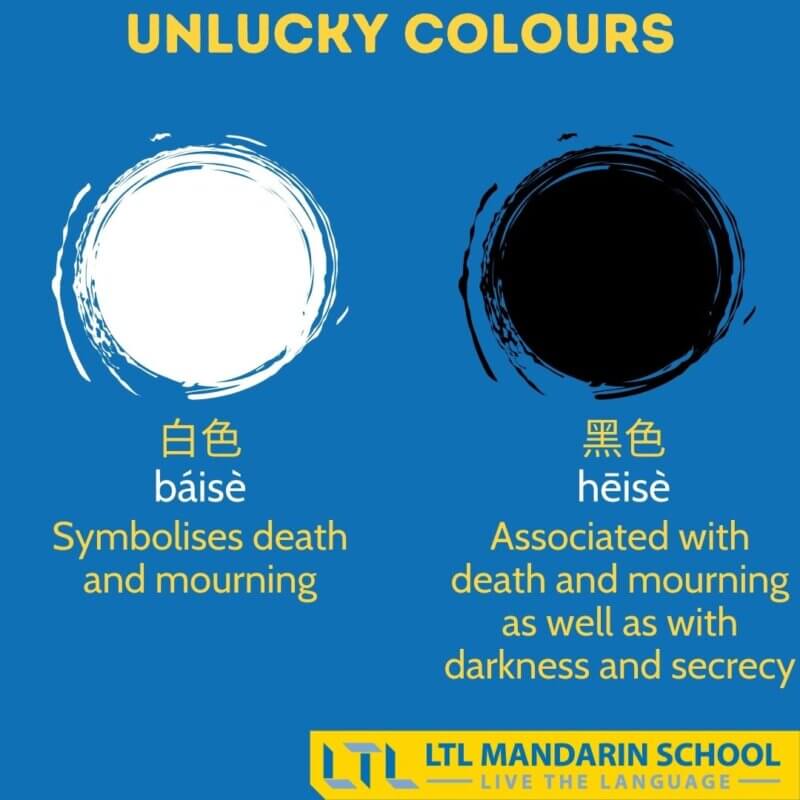
White features prominently at Chinese funerals and traditionally white flowers are given to the mourning family.
Another unlucky in China is black because, like the West, it is also associated with death and mourning as well as with darkness and secrecy. Both black and white are considered unlucky during Chinese New Year and people should not wear either colour to weddings.
However, in modern day China it has become popular for some brides to wear a white wedding dress, as one of the dresses at their wedding.
Chinese Superstitions – Gift Giving
When it comes to gift giving in China there are certain items that should be avoided because of what they are homophones for:
| Gift | Homophone |
|---|---|
| Clocks ( 钟 zhōng) | 终 zhōng = “the end” which means you wish for someone’s impending death |
| Umbrellas ( 伞 sǎn) | 散 sàn = “to separate” which means you think your relationship with the person is over |
| Pears ( 梨 lí) | 离 lí = “leaving or parting” which means you want to part ways with the person |
| Shoes ( 鞋 xié)* | 邪 xié= “evil” which means that you are giving the person an evil spirit or bad luck |
As well as these gifts that should be avoided because of what their name sounds like, there are also some other gifts that are a bad idea because of the superstitions attached to them in Chinese culture:
- Sharp objects such as scissors or knives because this symbolises that you want to cut off your relationship with that person.
- Mirrors because they are believed to attract evil spirits.
- Necklaces, ties and belts these should only be given between couples as they are seen as very personal, intimate gifts.
- Candles shouldn’t be given as gifts because they are traditionally used at funerals.
- Gifts in sets or multiples of four because, as we saw earlier four is considered to be a very unlucky number in China. It’s much better to give presents in multiples of lucky numbers like eight or six!
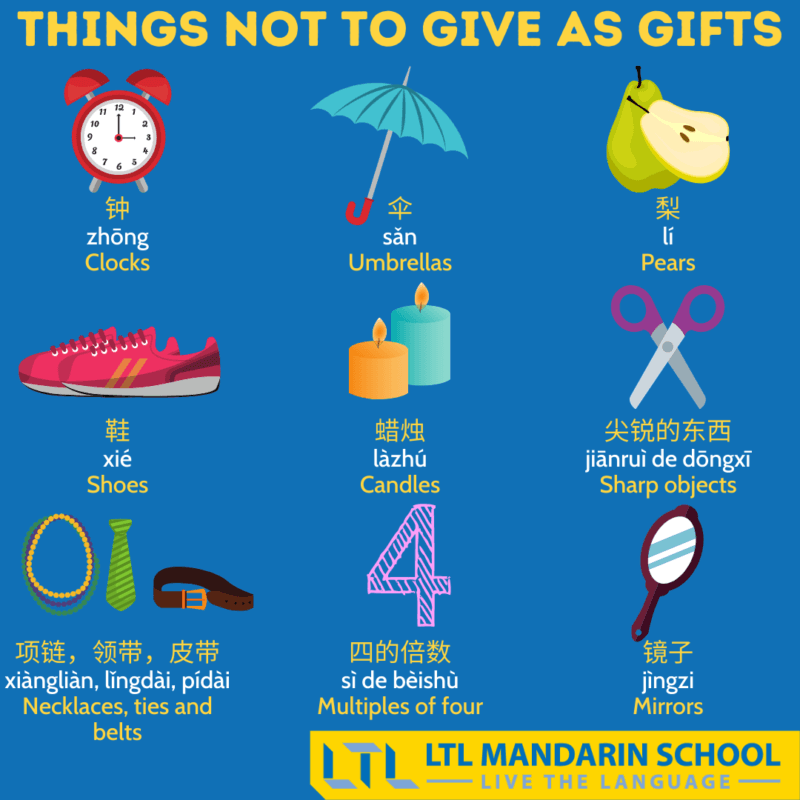
Chinese Superstitions – Chinese New Year
As the most important Chinese holiday, it should come as no surprise that during Chinese New Year there are a lot of Chinese superstitions.
So let’s have a look at some of the things you should do during Chinese New Year and some of the things that are taboo.
Things You Should Do
On the first day of the new year, doors and windows should be left open so that good fortune and prosperity can enter the house. You should also wear red.
As we already saw red is a very lucky colour in China so wearing it during Chinese New Year should bring lots of good luck.

As with many things in China food is of vital importance and of course Chinese New Year is no exception.
In fact most festivals in China such as mid-autumn festival all have auspicious food associated with them.
For Chinese New Year dumplings or rather 饺子 jiǎozi are a must and are traditionally eaten on Chinese New Year’s Eve ( 除夕 chúxī).
Dumplings represent Chinese gold and silver ingots that were used as money in ancient times. It is said that the more dumplings you eat the richer you will be in the new year.
Another must eat is fish because it is a homonym for 余 yú meaning surplus. Having fish every year symbolises the New Year blessing 年年有余 niánniányǒuyú, which means may you have abundance year after year.

Things You Should Not Do
Don’t clean or take the rubbish out until the fifth day of the Lunar New Year. This is because it’s thought to clear out money luck which will cause you to lose money.
Instead, any cleaning should be done before new year to clean out any bad luck and make room for the good luck to come in!
Avoid arguing, perhaps this advice should be taken all year round but arguing should definitely be avoided during new year. This is because if deities hear a household arguing they will not bless the family with good luck for the year ahead.
Take medicine. Ok of course, if you need to take some medication for a specific health condition you should.
But otherwise you should try not to as it signifies that you will be ill for the entire year and will need to take medication.
Lastly something that should not be done during the first lunar month is getting a hair cut. Bizarrely this is because it is thought that cutting your hair could lead to the death of your maternal uncle!
Yes, that’s a very specific superstition, however many Chinese people even in today’s society abide by this rule.
Chinese Superstitions – Chinese Zodiac
Following on from new year superstitions we have Chinese superstitions that surround the Chinese zodiac, the belief in which is superstitious itself, however let’s just have a look at some of the key beliefs.
Lucky and Unlucky Zodiac Signs
Yes, unfortunately your luck in life can be decided from the moment you’re born depending on which zodiac year you are born in.
That is if you are unlucky enough to be born in the year of the sheep (sorry to any sheep out there).
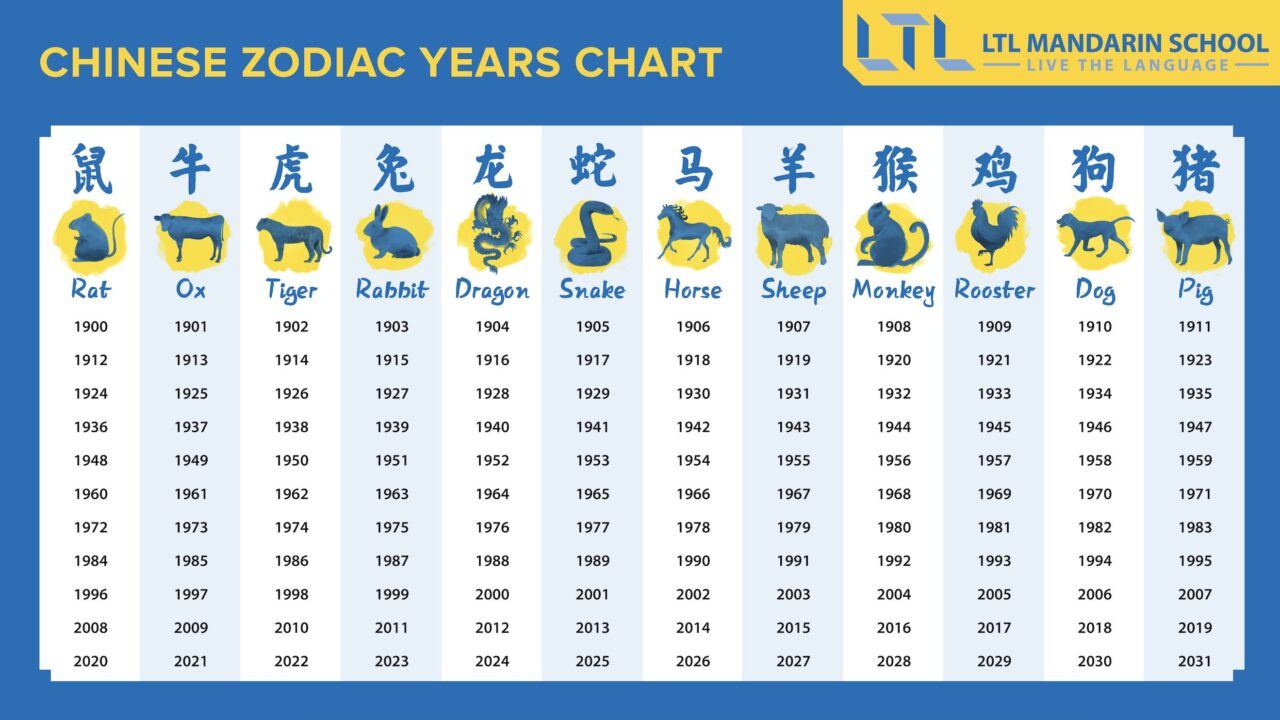
The main reason for this superstition comes from the Chinese saying 十羊九不全 shí yáng jiǔ bùquán which means that “nine out of 10 people born in the Year of the Sheep will suffer greatly”.
People born in the year of the sheep are also thought to be followers, and although this is an outdated superstition it can still have an effect in modern Chinese society.
The number one example of this is that the birth rate in China during the year of the sheep typically declines.
In contrast, during the year of the dragon, viewed as the luckiest zodiac sign the birth rate typically increases.
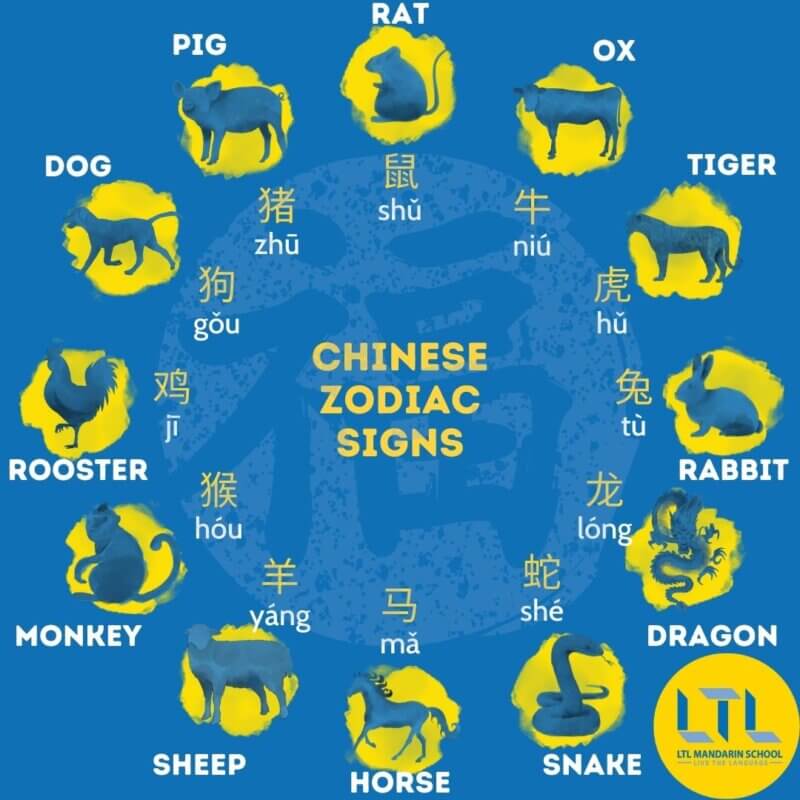
Being born in the year of the sheep can also affect job prospects with some employers filtering out applicants if they are born in the year of the sheep, ouch!
However, despite this there have been many successful Chinese people born in the year of the sheep such as the last empress of China Cixi.
As we mentioned earlier the year of the dragon is viewed as the luckiest zodiac sign, mainly because typical dragon characteristics are seen as desirable and thought to lead the person to a more happy and successful life.
Lucky and Unlucky Numbers for Each Zodiac
As well as the usual Chinese superstitions to do with numbers, each zodiac also has its own lucky and unlucky numbers.
If you know your Chinese zodiac you can check yours out below, or if you don’t know what it is, then use our Chinese zodiac calculator to find out!
| Zodiac Animal | Lucky Numbers | Unlucky Numbers |
|---|---|---|
| Rat | 2, 3 | 5 ,9 |
| Ox | 1, 4 | 5, 6 |
| Tiger | 1, 3, 4 | 6, 7, 8 |
| Rabbit | 3, 4, 6 | 1, 7, 8 |
| Dragon | 1, 6, 7 | 3, 8 |
| Snake | 2, 8, 9 | 1, 6, 7 |
| Horse | 2, 3, 7 | 1, 5, 6 |
| Sheep | 2, 7 | 4, 9 |
| Monkey | 4, 9 | 2, 7 |
| Rooster | 5, 7, 8 | 1, 3, 9 |
| Dog | 3, 4, 9 | 1, 6, 7 |
| Pig | 2, 5, 8 | 1, 7 |
Lucky Colours for Each Zodiac
Along with lucky numbers, each zodiac has lucky colours attached to it too.
| Zodiac Animal | Lucky Colours |
|---|---|
| Rat | Blue, gold, green |
| Ox | White, yellow, and green |
| Tiger | Blue, grey, orange |
| Rabbit | Red, pink, purple, blue |
| Dragon | Gold, silver, greyish white |
| Snake | Black, red, and yellow |
| Horse | Yellow and green |
| Sheep | Brown, red, and purple |
| Monkey | White, blue, gold |
| Rooster | Gold, brown, and yellow |
| Dog | Red, green, and purple |
| Pig | Yellow, grey, brown, gold |
Chinese Superstitions – Miscellaneous
Lastly let’s look at some of the more unusual Chinese superstitions that, to be honest, can seem just a little bit weird to an outsider (what is their deal with beards!?).
Houses
As the inventors of feng shui ( 风水 fēng shuǐ), which relates to how objects in a room should be placed to change how energy ( 气 qì) flows, it should be unsurprising that the position of a house is also important.
According to Chinese superstitions a family’s house should not be built facing north because then this will bring them bad luck.
This is because the north represents darkness, evil and bad luck (kind of sounds like something you’d hear them say about the north in Game of Thrones right).
Although this superstition is more firmly believed by the older generation it can still affect house prices, with Northern facing apartments sometimes being cheaper than Southern facing ones.
Post Childbirth
When it comes to childbirth and the health of new born babies and their mother’s it is a very important time, where caution should be applied, however in China this is really taken to the extreme.
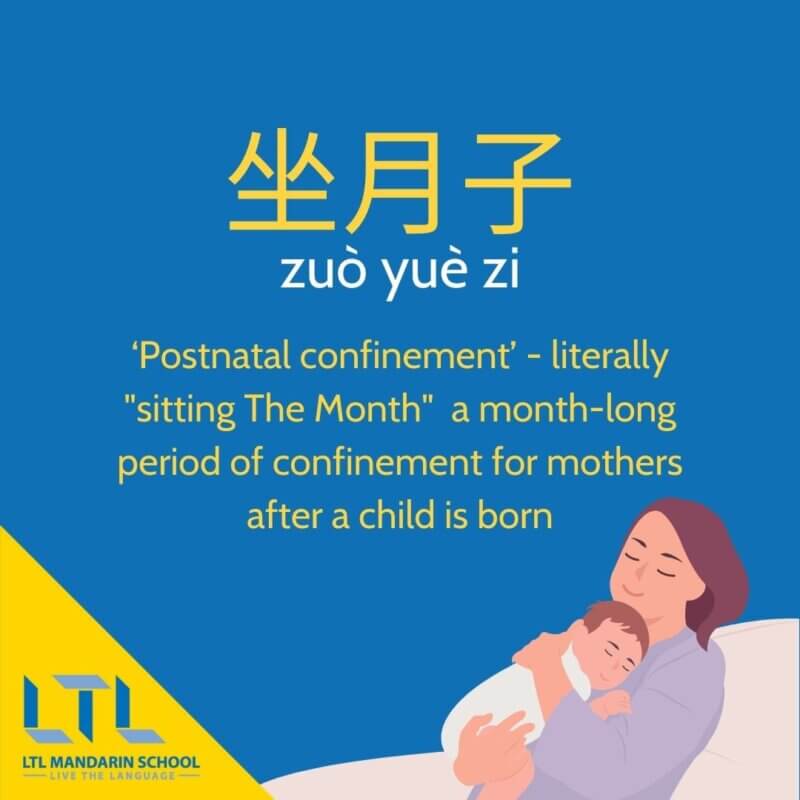
Post childbirth is a time when Chinese superstitions really show prominently with it being traditional for new mothers to spend the first 30 days after their baby is born in confinement.
In Chinese this is called yuè zi ( 月子 ) which just translates to The Month, then actually going through the month of confinement is called 坐月子 zuò yuè zi which literally means sitting The Month.
Now, this goes beyond much more than just a Chinese equivalent of maternity leave.
New mothers are not permitted to leave the house, are discouraged from washing, are not supposed to eat/drink certain foods and drinks etc.
Some new mothers are even discouraged from reading or watching too much TV.
So where does this superstition come from?
The basis for this is that it is thought that new mother’s are particularly susceptible to colds and diseases so certain things, such as showers pose a risk to this so should be discouraged.
However, in modern day China there is more flexibility with the month of confinement, especially with many women in China now also working so these rules are not as strictly imposed for lots of women.
If you want to find out more about Chinese traditions relating to childbirth read our blog about pregnancy in China .
Turtles
Although turtles are revered for their longevity in Chinese culture, they are also considered bad luck if you own one.
It is thought that keeping a turtle as a pet will slow down your business and could ruin your fortune.

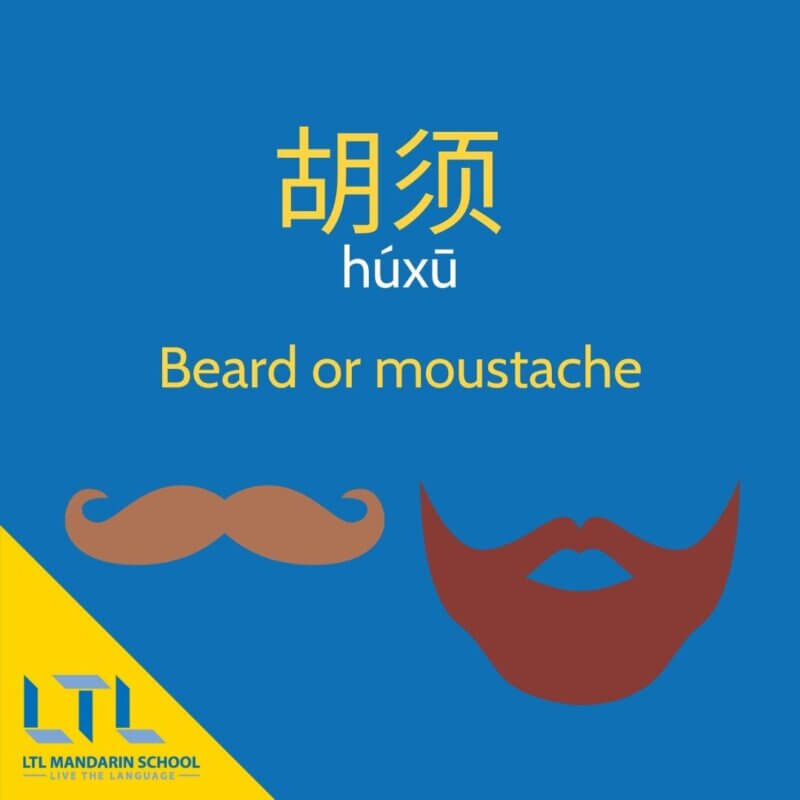
Facial Hair
Last up on our list of Chinese superstitions we have one that will offend hipsters everywhere! In China facial hair such as a beard or moustache is seen as bringing bad luck.
This is because facial hair is viewed as looking dishevelled or unkempt which is supposed to bring misfortune on your family. It can also possibly lower your social standing. This may explain why you see very few Chinese men with beards.
However, as with many Chinese superstitions this one is becoming less believed and in modern day China a well trimmed moustache can be acceptable.
These cultural insights are even more fascinating when encountered in daily life—especially while studying Mandarin in Shanghai, where traditions meet modern living.
Chinese Superstitions || FAQs
What are lucky Chinese numbers?
The most lucky Chinese number is the number 8.
The numbers 6 and 9 are also considered lucky.
What are unlucky Chinese numbers?
In China the number 4 (四 sì) is considered unlucky because it sounds the same as the word for death: (死 sǐ).
What colours are lucky in China?
In China the most lucky colour is red, other lucky colours are yellow and green.
What colours are unlucky in China?
In China both white and black are considered unlucky colours because they are associated with death and mourning.
What’s the most common superstition during Chinese New Year?
Many believe you shouldn’t sweep or clean on New Year’s Day, as it symbolizes sweeping away good luck
Want more from LTL?
If you wish to hear more from LTL Mandarin School why not join our mailing list.
We give plenty of handy information on learning Chinese, useful apps to learn the language and everything going on at our LTL schools!
Sign up below and become part of our ever-growing community!
BONUS | Want to study the local dialect known as Shanghainese? We provide Shanghainese Classes in person and online.
⭐ Download our free ebook, your starter pack of essential Mandarin learning resources!


 Hi, my name is Mojca. I am from Slovenia in Europe and I and I work as a student advisor at our Shanghai school.
Hi, my name is Mojca. I am from Slovenia in Europe and I and I work as a student advisor at our Shanghai school.




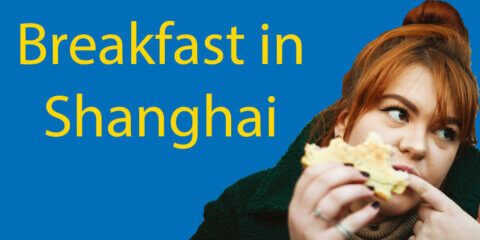



1 comments
[…] 梨 hold important cultural significance due to their homophones, you’ll find out more in our Chinese Superstitions […]